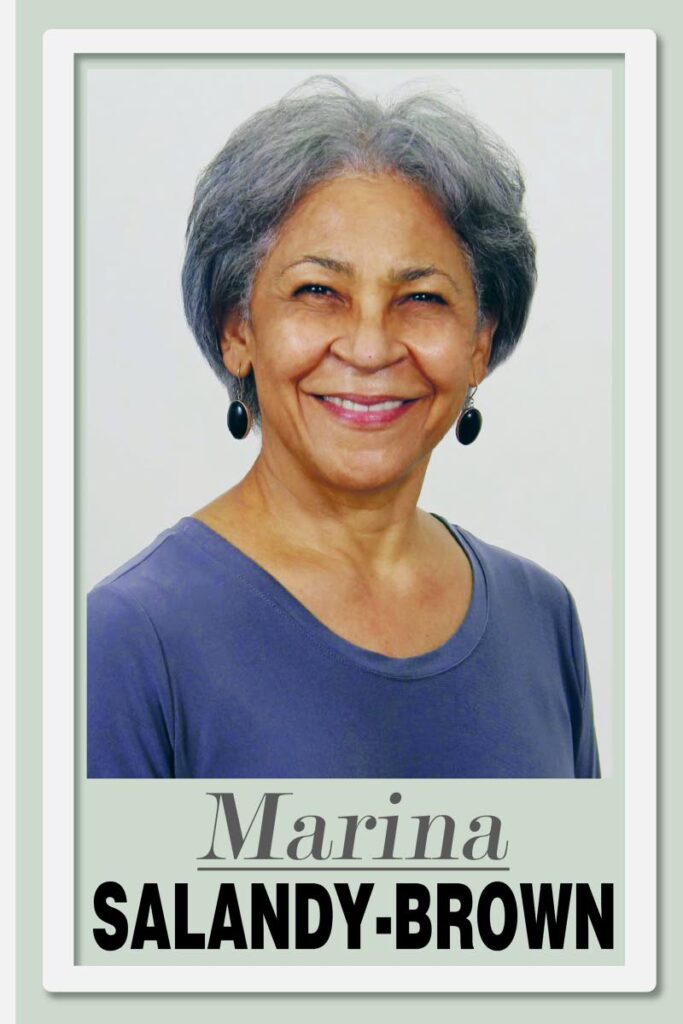An inevitable backlash

No amount of reading reports, magazines or newspaper features on society and politics, armchair travelling or Zooming will ever approximate the knowledge one gleans from a genuine experience that speaks to all our senses.
Simple, accidental truths cannot be revealed in any other way. That reality was underlined during a visit to the cinema on the last evening of a working trip to the UK to promote some of our best Caribbean writers and introduce them to an extremely warm and eager UK audience, comprising both English and British people of mixed and Caribbean origin.
Living is the title of a just-released, bittersweet film about finding happiness while facing death. The star, Bill Nighy, embodies old-fashioned English restraint and decorum, right down to his 1940s pinstripe suit, immaculately white shirt, bowler hat and furled umbrella. Capturing the stillness and self-control at the heart of being that sort of outdated, middle class English gent would not have been difficult for Japanese-born scriptwriter Kazuo Ishiguro.
The Nobel literature laureate was five when his parents moved to the UK, and his multi-prizewinning, sparse novels uniquely capture elements of currents underlying seemingly placid English and Japanese societies. Unsurprisingly, therefore, Living is based on a Japanese work of fiction by Akira Kurosawa.
The cinema was only one-third full and the audience appeared to be English, except for a South Indian couple who asked me to move from their numbered seat, although it was not the best in the house.
The glossy ads were a revelation and even more so the trailers for upcoming films. In 99 per cent of all the onscreen images, a person of African origin was the most visible, from sexy Miss World-style brand icon to big-studio lead film actors. One of the ads, in particular, made me consider the strategy at work, and if, in fact, there was one.
My favourite Bill Withers song is the music track. An oddly-shaped, African-American male actor is putting down some hot moves to the tune while a very ordinary-looking seemingly African-American female looks on bemusedly. The doorbell rings for a British food delivery and the dance and music are unceremoniously abandoned.
It was amusing, but did the producers really mean to ask, “Who is he, and what is he to you?" as the lyrics do? It seemed rather pointed, given the obvious foreignness of the actor and the music. I felt caught up in an expensive post-George Floyd/Black Lives Matter idiocy.
The positive representation of black people is not without purpose and reason, but I wonder about negative reactions to the overreaching, knee-jerk ubiquitousness of campaigns to correct the previous wilful exclusion of immigrants of colour from many areas of industry, employment, management and education.
Some English people politely say the ads are fine, which means they noticed the ethnic imbalance, because they also relate that according to the 2011 population census, black ethnic groups comprise only three per cent of the UK population, Asian ethnic groups 7.5, mixed/multiple ethnic groups two and other ethnic groups one per cent.
In the field of British publishing, where foreign-language and new-world English novelists have been making inroads and winning the big prizes, the pushback has started.
The English owner of a small bookshop confided that the biggest international publishing house refused to work with her again this year, since she had already featured significant numbers of titles by non-English writers. And that is while the very publisher is republishing landmark Caribbean titles and signing up new Caribbean writers.
Similarly, in academia, quotas seem to be the new normal, with Caribbean- or “black”-focused events and projects being targeted.
It is not a surprise. Timing when to push hardest at stable doors which are only ever, at best, ajar has always been necessary. The challenge comes in managing the gatekeepers’ uninformed, half-baked ideas of how to take advantage of the opportunities of each wave of knocking and pushing.
UK Black History Month has grown substantially since its inauguration in 1987 and raised awareness of the multicultural nature of modern British society. Amazingly, the till receipt of a leading supermarket chain had "October is Black History Month'' printed on it.
Malorie Blackman, of Caribbean-heritage, is the former children’s laureate and the celebrated author of the best-selling Noughts and Crosses series. She has called for every month to be Black History Month to avoid charges of “race-baiting.” She is right about the selectiveness of British history and in her recommendation that an integrated history be taught in schools year-round – Britain’s role in the colonies and Ireland are not routinely taught.
Combating racism is a war with many battles, and those dedicated to fighting it must stay focused on the desired result. The rise of the growing children-of-immigrants middle and political classes within even the traditionally safe bastion of the Tory party has provoked unhealthy but unsurprising responses, including the English middle classes hastening their retreat into their private enclaves, leaving the British un-English to their own devices.
It proves the point that the Establishment is never where we think it is.

Comments
"An inevitable backlash"